Visible Expert®s. This is what we at Hinge call those special people who rise above the noise and capture your attention through their authenticity, trustworthiness, expertise, and experience. These folks have “cracked the code” around digital marketing, leadership, growth, technology and so many other topics and are willing to share their insights and tips with an ever-growing audience. All started from relative obscurity and have moved over time to national or even international prominence. Some are CEOs. Many are authors and speakers. And still others are industry subject matter experts.
As Co-host of Hinge’s “The Visible Expert Podcast,” I enjoy chatting with–and learning from–them every week. Sometimes they educate us. Other times they challenge or provoke us. All the time they make it worth our while to listen. How did they become Visible Experts? Why do people listen to them on a given topic? What do they know that you do not know that you could apply to your business today?
In the last few months we have talked with many Visible Experts that I really admire and respect. I have gone back and re-listened to many of our podcasts and tried to carve out a nice sampling of the conversations in this blog. There were so many great insights that I have had to break this blog into two parts. But enough from me. Let’s hear from the first seven Visible Experts…
Mark Schaefer, Keynote speaker and author of “Marketing Rebellion: The Most Human Company Wins”:
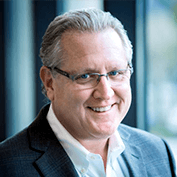 “A brand used to be what we told our consumers it was–the ideas we put in their mind. Today, a brand is what consumers tell each other. Two-thirds of our marketing is occurring without us. The power has moved to the people. Markets are conversations. The challenge of marketing today is ‘how do we join those conversations?’ We can’t buy our way in. People don’t want the ads. They block the ads. Eighty percent of American adults don’t believe ads. We have to adopt a new mindset to reimagine marketing that the customer is the marketer. The customer is telling the story. The customer is defining the brand.
“A brand used to be what we told our consumers it was–the ideas we put in their mind. Today, a brand is what consumers tell each other. Two-thirds of our marketing is occurring without us. The power has moved to the people. Markets are conversations. The challenge of marketing today is ‘how do we join those conversations?’ We can’t buy our way in. People don’t want the ads. They block the ads. Eighty percent of American adults don’t believe ads. We have to adopt a new mindset to reimagine marketing that the customer is the marketer. The customer is telling the story. The customer is defining the brand.
Instead of trying to manipulate and change them, how do we come alongside these people and help them tell our story? That’s marketing today. Put yourself in the shoes of the consumer. We are all consumers. Think about ‘what do we believe?’ How do we buy products? I see people’s faces change in my audience when they realize, “this is right. This is how my world works as a consumer. Why do I think the world doesn’t work this way as a marketer? I know the world works this way because I trust my friends, I trust my family, I even trust these folks called influencers.’ We need to wake up, get out of our cubicles, look at reality, and adjust to what is. We can’t keep running our marketing departments on tradition, on heritage, or because we are organized a certain way and we don’t want to upset the organizational chart. We can’t run a business on what we wish for, we have to run a business on what is. Be smart about it.”
Hear the rest of Mark’s insights: https://hingemarketing.com/library/article/mark-schaefer-keynote-speaker-author-of-marketing-rebellion
Henry Schuck, CEO of ZoomInfo (Formerly DiscoverOrg):
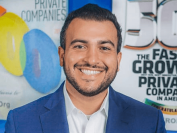 “What you want if you are a marketer or salesperson is the ability to holistically look at the market and then pick and choose where you are going to go. For years, companies bought Salesforce on the premise that it was digitally going to transform them. They pumped data into Salesforce from all different sources–web forms, event lists, sales reps, ebooks, and more and all that data went into Salesforce and then what? It just sat in Salesforce for years and spoiled. The data gets worse every year. Nobody is managing that data in an automated and scalable way. Changes are not reflected in the data in your single source of truth.
“What you want if you are a marketer or salesperson is the ability to holistically look at the market and then pick and choose where you are going to go. For years, companies bought Salesforce on the premise that it was digitally going to transform them. They pumped data into Salesforce from all different sources–web forms, event lists, sales reps, ebooks, and more and all that data went into Salesforce and then what? It just sat in Salesforce for years and spoiled. The data gets worse every year. Nobody is managing that data in an automated and scalable way. Changes are not reflected in the data in your single source of truth.
With a marketing and sales intelligence platform like ZoomInfo that plugs into Salesforce, you can have all of your data refreshed and up-to-date in real time. You get signals. You get notified based on changing behaviors. Now you are in a position to say, ‘I want to do an ABM campaign to all of the companies that are current opportunities in the pharmaceutical industry that have grown 30% over the last five years and I want to contact their CIOs, VPs of IT, and VPs of Information Security. That is now a seamless task. If you were to ask the vast majority of companies to run a campaign like that, their heads would basically explode. That shouldn’t be hard. Having great data in your CRM felt far away. It’s just not. Five years from now if you are not going to market this way your organization will die.”
Hear the rest of Henry’s insights: https://hingemarketing.com/library/article/henry-schuck-ceo-founder-at-discoverorg-zoominfo
David C. Baker, Author of “The Business of Expertise,” Advisor, and Podcast Host
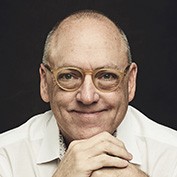 “Pattern matching is at the essence of intelligence. One of the reasons why so many folks in the professional services space struggle with having deep enough insights to share with clients is that they haven’t made courageous focusing decisions. Patterns don’t surface until you put yourself in a situation where the one you are looking at now is fairly similar to the one you looked at yesterday and the one you looked at the day before and then last week–and then all of a sudden the patterns can emerge.
“Pattern matching is at the essence of intelligence. One of the reasons why so many folks in the professional services space struggle with having deep enough insights to share with clients is that they haven’t made courageous focusing decisions. Patterns don’t surface until you put yourself in a situation where the one you are looking at now is fairly similar to the one you looked at yesterday and the one you looked at the day before and then last week–and then all of a sudden the patterns can emerge.
How can we put ourselves in situations where we can notice those patterns? We make courageous positioning decisions so that we have similar situations over and over again. And then, we craft our businesses so that we are not scurrying around solving client problems every minute of the day. We are actually spending a significant amount of our time away from direct client work developing those overall impressions of what they need to be doing and that feeds this whole insight generation which makes us smarter, which enables us to charge more. It’s just a beautiful loop.”
Hear the rest of David’s insights: https://hingemarketing.com/library/article/david-c-baker-author-of-the-business-of-expertise-advisor-podcast-host
Ahmad Munawar, Founder of Boutique Growth and Creator of the 90 Day Pipeline™:
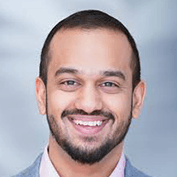 “I think for the vast majority of consultants and professional services providers LinkedIn should absolutely be your #1 channel–because that is where the buyers are. I don’t know a faster way for us to build a targeted list of people that you want to work with. Literally within a few clicks of a mouse and strokes of a keyboard, we can build you a list of hundreds and thousands of prospects that you ought to be connecting with. I don’t know of a faster way to connect with them either than the way you can on LinkedIn. And I don’t know of a faster way to get a message in front of them either in the feed through your content or through direct messaging.
“I think for the vast majority of consultants and professional services providers LinkedIn should absolutely be your #1 channel–because that is where the buyers are. I don’t know a faster way for us to build a targeted list of people that you want to work with. Literally within a few clicks of a mouse and strokes of a keyboard, we can build you a list of hundreds and thousands of prospects that you ought to be connecting with. I don’t know of a faster way to connect with them either than the way you can on LinkedIn. And I don’t know of a faster way to get a message in front of them either in the feed through your content or through direct messaging.
A big challenge for a lot of consultants and professional services providers trying to become Visible Experts is authenticity. We feel like we have to be buttoned up. We need to look very professional. We can only say things a certain way and we can’t let too much personality come out in our content, marketing, or messaging. A lot of people feel like ‘I don’t have anything to offer. I don’t have anything to say. I am just a consultant or a this or a that.’ That attitude holds a lot of people back–because of impostor syndrome, a fear of failure, self-doubt, or a number of other issues. You need to dig deep and ask yourself, ‘what can I bring to the market that nobody else can?’ I had to ask myself this question to get more comfortable in my own skin and my more authentic self came out. Once you master authenticity you can start nurturing relationships at scale.”
Hear the rest of Ahmad’s insights: https://hingemarketing.com/library/article/ahmad-munawar-creator-of-the-90-day-pipeline
Anthony Fasano, Author, Speaker, and Executive Coach for Engineers
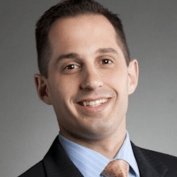
“The first thing that I tell engineering managers who come to our training is I know that you are probably thinking to yourself that ‘this is a waste of time. I don’t want to leave my projects and spend the whole day here with you.’ I tell them that there is a saying that goes ‘if you are too busy to fill up the car with gas, eventually you are going to run out.’ If you are too busy to take the time to work on some of your skills, eventually your skills are not going to be where they need to be for you to be successful on your projects. That is a mindset that engineers need to go into with any of their professional development efforts.
Think of a frog and boiling water. If you throw a frog into boiling water, it will immediately jump out. However; if you put a frog into cold water and slowly boil it, it won’t get it until it is too late. If you take the time consistently every day to do business development, to build your soft skills, to build your network on LinkedIn, to build your expertise, there will be less of a chance that all of a sudden one day the water boils or you have a problem. Because if something like that happens, you are able to adapt to because of all the work you have been putting into it on a regular basis.”
Hear the rest of Anthony’s insights: https://hingemarketing.com/library/article/anthony-fasano-author-speaker-executive-coach-for-engineers
Andy Crestodina, Chief Marketing Officer and Co-Founder, Orbit Media Studios, Inc.
 “Looking back, I wish I had figured out a few years earlier that long-form, detailed, step-by-step instructions for the slightly more advanced marketing tactics would be so hugely effective and valuable to readers. If I look at some of the silly things I was publishing like comparing a marketing tactic to a popular movie–not really valuable content. If I had gone deeper into the really detailed stuff and done so with video earlier and done more with advanced topics…this is how to build much larger audiences which make it easier to grow awareness, attention, and demand.
“Looking back, I wish I had figured out a few years earlier that long-form, detailed, step-by-step instructions for the slightly more advanced marketing tactics would be so hugely effective and valuable to readers. If I look at some of the silly things I was publishing like comparing a marketing tactic to a popular movie–not really valuable content. If I had gone deeper into the really detailed stuff and done so with video earlier and done more with advanced topics…this is how to build much larger audiences which make it easier to grow awareness, attention, and demand.
I started out as a teacher. Speaking is an extension of teaching. Focusing on live events helps me be more relevant and get closer to our audiences. In a networking event you meet five or ten people. You give a presentation and you will meet 20, 30, or 100 people. Also producing events are great. We produce Chicago’s largest content marketing conference. It started out tiny. This is an example of ‘just do something and keep doing it.’ Get the momentum and you will gradually get pulled deeper into the format. It’s a case of a little initiative and a lot of persistence. Events are probably the only format of content for which demand exceeds supply. Our event has sold out the last five years. I recommend hosting a conference–or a small event, a monthly event. B2B service companies would benefit from just getting people together. It works really well.”
Hear the rest of Andy’s insights: https://hingemarketing.com/library/article/expert-interview-with-andy-crestodina
Rand Fishkin, Wizard of Moz, Founder of SparkToro, and Author of “Lost and Founder”

“If there is existing conventional wisdom about how you should build a startup, it is probably valuable to question that and think of other ways to do it. I think a big problem is that startups, especially over the last 20 years and especially in the technology world, have been biased by popular culture and media and what gets covered and amplified and talked about such that many, many founders and many people who join these companies at early stages believe that it can only work one way. You must be young. You are usually white or Asian and male. You must be on a coast of the United States. If you are on the East Coast, you have to be north of Washington, DC. You have to raise money in a certain way. You have to hire people in a certain way. You have to grow at a certain pace. Profitability is a bad word.
Most software startups try to get their product out three to six months after raising money. They build an MVP (minimum viable product) and start testing that publically. Putting out a sub-par, mediocre product does not endear you to your customers and users–or your marketplace. In fact, people will have for a long, long time this brand hangover about you. ‘I tried that when they launched and it was crap.’ Even if it has gotten 10 times better in the last two years, you still carry that association. That is something we watch out for. Our beta product has been in development for over a year. We don’t want to launch until we have something good and worthwhile.”
Good stuff, huh? I hope you picked up at least one tip or insight that got you thinking a little bit differently today. I promise you will get even more if you take the time to listen to the full podcasts. Like I said, we have had a lot of great podcast conversations and these are the first seven that I wanted to bring to your attention. I will have another seven coming your way soon.
